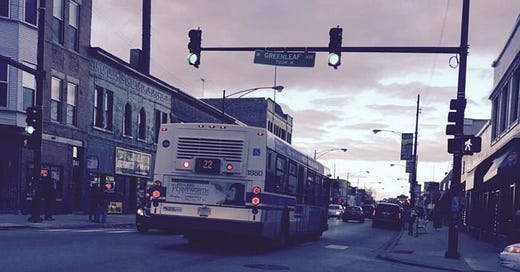On any given day, Ben and I can walk down the street and hear three to five languages being spoken. Skin colors mixed and muddled, hijabs, a Krishna temple half a block from a Catholic church.
Up the street, there's a church that collects clothes for refugees who aren't prepared for the cold Chicago winters.
I try to imagine what leaving most of what you own and everything you know behind might feel like. An impossible, arrogant task. I've had my share of tragedy and still, by comparison, my life has been a cake walk.
When I’m out walking, Ben's friend Abeola will sometimes scream past me on his bike. "Hi Ben's mom," he’ll shout, throwing his hand back in a quick wave, his face like a shadow.
Another friend from camp wears the same pants every day, holding them up with his thumbs, no belt in sight. "I think those are his favorite pants," Ben told me this past summer.
I look at him and bite my lower lip. "Well," I say, "not exactly ..." and he listens as I explain.
I take for granted the beauty of this neighborhood, the smiles exchanged as currency between people who don't share a common language. Struggle bumping up against head above water leaning into more than enough.
Human, humanity.
I turn that word over on my tongue sometimes until it blurs, indistinct and unrecognizable. Then, the world at my door reminds me that I am me connected to you and the trees and the sky and the dry desert sand, over and around, everything, everyone.





